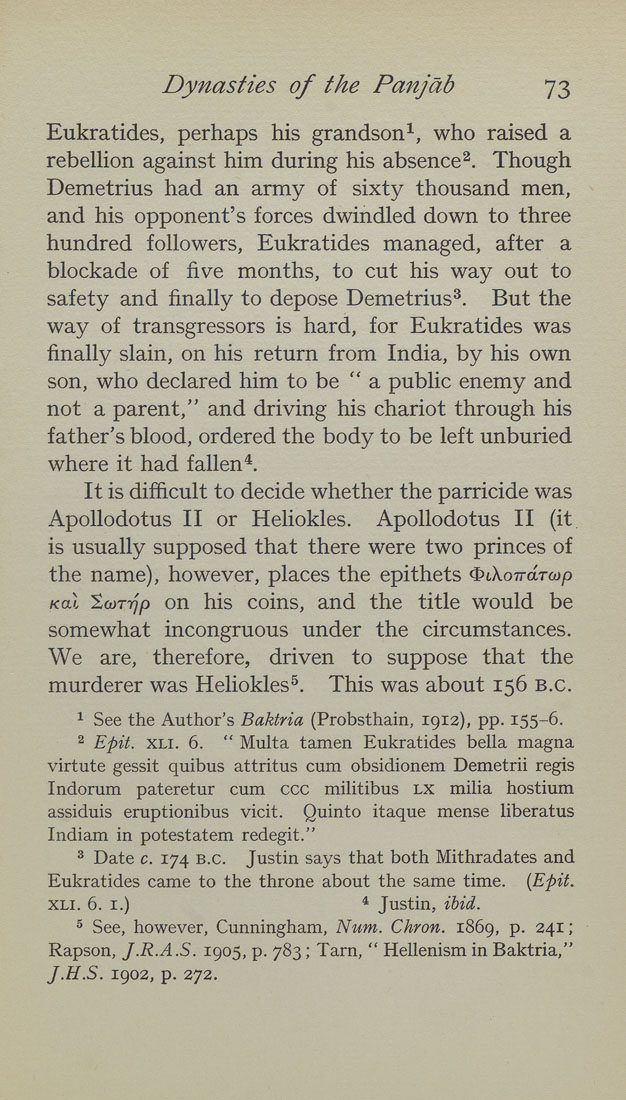Dynasties of the Panjab 73
Eukratides, perhaps his grandson^, who raised a
rebellion against him during his absence^. Though
Demetrius had an army of sixty thousand men,
and his opponent's forces dwindled down to three
hundred followers, Eukratides managed, after a
blockade of five months, to cut his way out to
safety and finally to depose Demetrius^. But the
way of transgressors is hard, for Eukratides was
finally slain, on his return from India, by his own
son, who declared him to be "a public enemy and
not a parent," and driving his chariot through his
father's blood, ordered the body to be left unburied
where it had fallen*.
It is difficult to decide whether the parricide was
ApoUodotus II or Heliokles. ApoUodotus II (it
is usually supposed that there were two princes of
the name), however, places the epithets ^CkoTvaroip
Kal 1q)T7]p on his coins, and the title would be
somewhat incongruous under the circumstances.
We are, therefore, driven to suppose that the
murderer was Heliokles^. This was about 156 B.C.
^ See the Author's Baktria (Probsthain, 1912), pp. 155-6.
2 Epit. XLi. 6. " Multa tamen Eukratides bella magna
virtute gessit quibus attritus cum obsidionem Demetrii regis
Indorum pateretur cum ccc militibus lx milia hostium
assiduis eruptionibus vicit. Quinto itaque mense liberatus
Indiam in potestatem redegit."
2 Date c. 174 B.C. Justin says that both Mithradates and
Eukratides came to the throne about the same time. {Epit.
XLI. 6. I.) * Justin, ibid.
^ See, however, Cunningham, Num. Chron. 1869, p. 241;
Rapson, J.R.A.S. 1905, p. 783; Tarn, " Hellenism in Baktria,"
J.H.S. 1902, p. 272.
|








